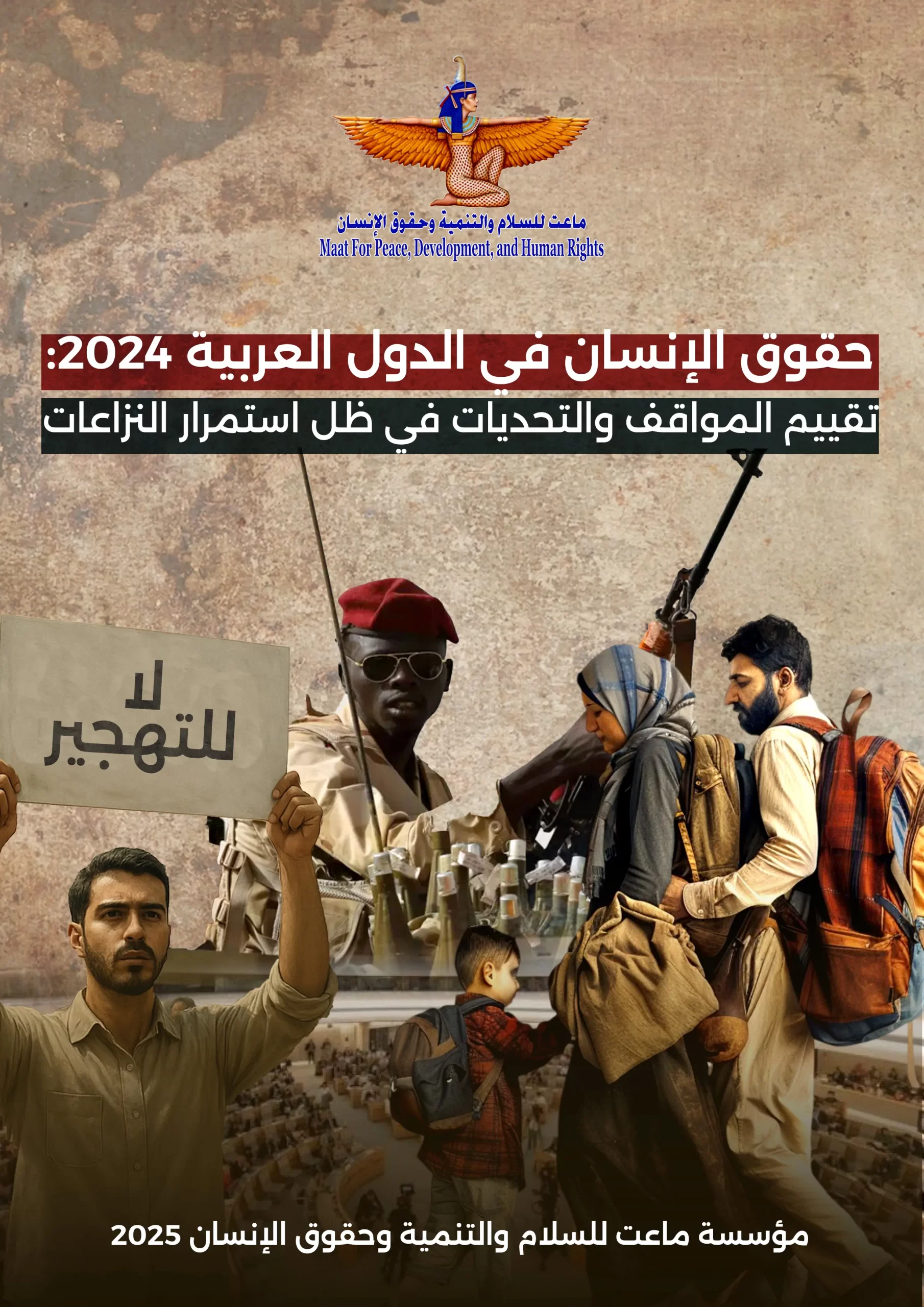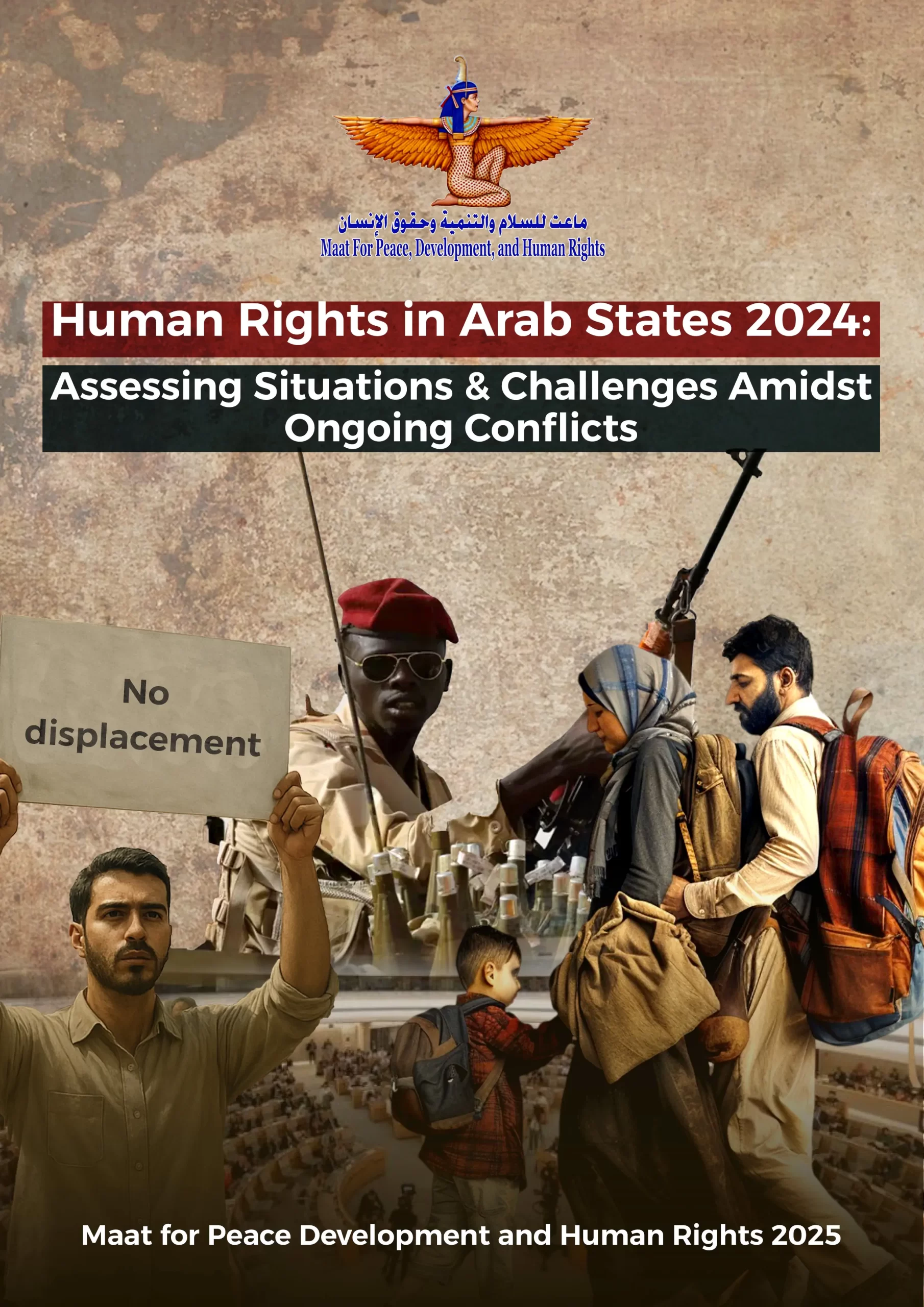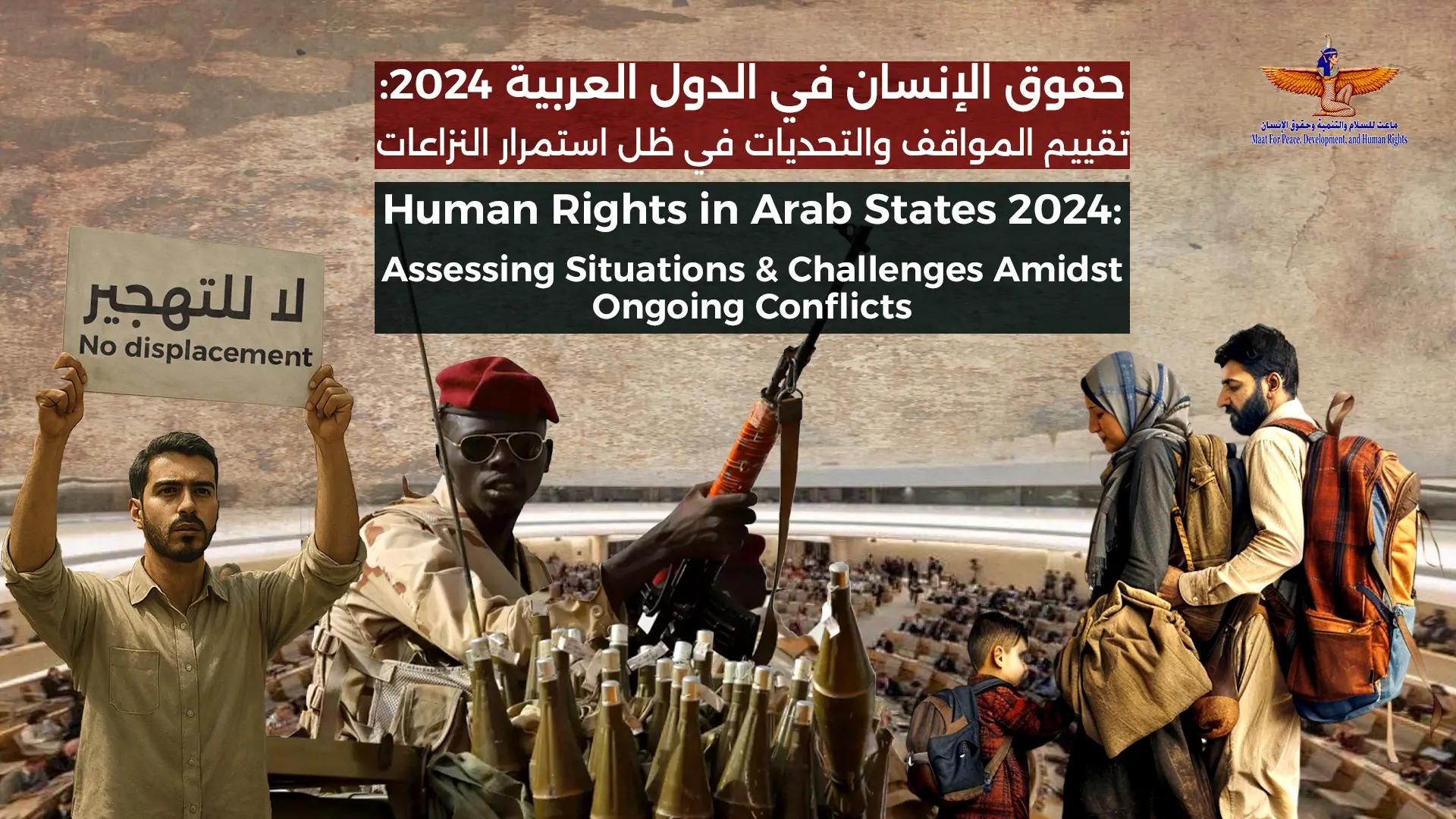Maat Launches Eighth Annual Report on Human Rights Situation in the Arab Region for 2024
Okeil: Ongoing armed conflicts and imposed legislative restrictions hinder the progress of human rights in many Arab countries.
Sherif Abdel Hamid: The silence of the international community is no longer acceptable in the face of crises in the Arab region.
In light of the ongoing human rights challenges facing the Arab region, Maat for Peace, Development and Human Rights has issued its eighth annual report for 2024, titled "Human Rights in Arab Countries 2024: Assessing Positions and Challenges in Light of Ongoing Conflicts." This report provides a comprehensive overview of the human rights situation in 22 Arab countries, highlighting both progress made and significant challenges that hinder the promotion of these rights. The report analyzes the commitment of Arab countries to international human rights standards, focusing on four main axes: the position of Arab countries on international and regional human rights mechanisms; efforts made by Arab countries to achieve the Sustainable Development Goals (SDGs); detailed review of the human rights situation in Arab countries; and the repercussions of armed conflicts on the rights of refugees and displaced persons.
The findings indicate a disparity in commitment to international agreements, such as the Convention against Torture (CAT), the Convention on the Rights of the Child (CRC), and the Convention on the Elimination of All Forms of Discrimination against Women (CEDAW). While countries like Morocco, Tunisia, and Jordan have made notable progress, others, including Syria, Yemen, and Saudi Arabia, continue to face significant legislative and implementation challenges.
The report also highlights the obstacles to achieving the SDGs, noting that while some Gulf countries have advanced in health and education, conflict-affected nations like Yemen, Syria, and Sudan are experiencing severe deterioration that threatens millions of lives.
Regarding refugees and displaced persons, the report paints a grim picture of the catastrophic conditions faced by millions in conflict zones, amid a near-total absence of basic services. It emphasizes the urgent need to strengthen humanitarian responses and collaborate with international organizations to provide necessary protection and assistance.
In this context, Ayman Okeil, a human rights expert and head of Maat, emphasized that the report reflects the Arab region's ongoing struggle with significant human rights challenges, especially during a time of rapid development. Okeil pointed out that ongoing armed conflicts and legislative restrictions impede progress in human rights across many Arab countries. He stressed the need for enhanced international and regional cooperation to uphold human rights and achieve sustainable development.
Okeil further noted that progress in human rights is closely tied to political and economic stability. The lack of political will in some countries poses a substantial barrier to necessary reforms. He called on governments to take concrete steps, including reviewing laws that restrict freedoms, strengthening judicial independence, and ensuring civil society participation in decision-making processes, to align with international human rights standards. He emphasized the critical need for a healthy and sustainable human rights environment in the Arab region.
Sherif Abdel Hamid, Vice President of Maat for Research and Studies, emphasized that stability and development cannot be achieved without respect for human rights. The recent report highlights the dire conditions faced by refugees and displaced persons, who suffer from severe violations, including shortages of food, water, and healthcare, alongside forced displacement and the destruction of their communities' infrastructure. Abdel Hamid pointed out that the continuation of these conditions without effective intervention exacerbates the humanitarian crisis and poses significant challenges to both regional and international security. He urged Arab governments and international organizations to take responsibility by providing safe humanitarian corridors; ensuring the delivery of necessary assistance to the displaced; and working towards permanent solutions that guarantee the right to a decent life for affected individuals. He stressed that the international community's silence in the face of these crises is no longer acceptable, as inaction could lead to further violations that threaten peace and stability across the region.
The report serves as a reference document that assesses the human rights situation in the Arab region through an objective, analytical, and legal monitoring approach. It is based on standards consistent with national constitutions and international commitments. Like previous reports, it aims to enhance awareness and cooperation between Arab countries and the international community regarding human rights. Key recommendations from the report include enhancing regional and international cooperation to protect human rights, harmonizing national legislation with international standards, and adopting sustainable policies to ensure the rights of groups most affected by conflicts.

 |
 |
shortlink: https://maatpeace.org/en/?p=44426












